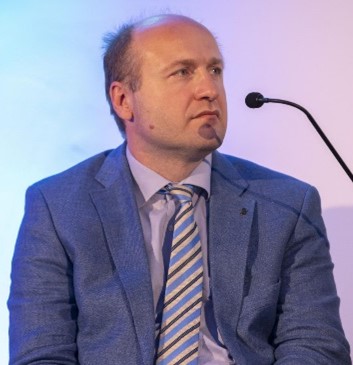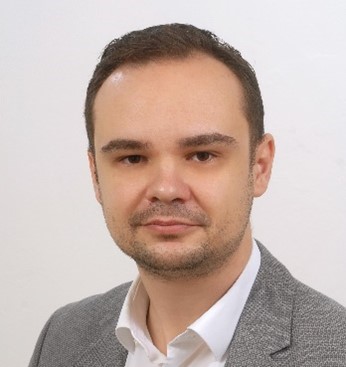The Croatia National Committee aims to promote sustainable energy development in Croatia, as a part of the World Energy Council’s energy vision. As a member of the World Energy Council network, the organisation is committed to representing the Croatian perspective within national, regional and global energy debates. The committee includes a variety of members to ensure that the diverse energy interests of Croatia are appropriately represented. Members of the committee are invited to attend high-level events, participate in energy-focused study groups, contribute to technical research and be a part of the global energy dialogue.

Ivan Andročec was born in Zagreb in 1978. He graduated from the Faculty of Electrical Engineering and Computing, University of Zagreb in 2001 and obtained his Master of Science in 2005. He completed the Diploma Study in Management (DSM) business school in 2005-2006. In 2012, he received his doctorate from FER and obtained the scientific title of scientific associate in June 2022. In July 2023, he was elected as the titular assistant professor at the Faculty of Mechanical Engineering and Shipbuilding, Zagreb.
Since 2001, he has held various positions at Hrvatska elektroprivreda d.d., including Director of the Strategy and Development Department and Deputy Director of the Strategy and Development Department. He is also the president of the Supervisory Board of LNG Hrvatska d.o.o.
He has a diverse background in strategic planning, energy markets, and business development. His experience includes working on projects related to energy trading, consumption planning, electricity market analysis, EU legislation compliance, security of energy supply, and more. He has also been involved in projects related to renewable energy, energy storage, hydrogen use, and various other energy projects.
During his postgraduate studies, he spent time at SINTEF Energy Research in Trondheim and the Norwegian University of Science and Technology as part of his master's and doctorate degrees. Since 2002, he has been working as an external associate at the Faculty of Electrical Engineering and Computer Science and also assists at the Faculty of Mechanical Engineering and Shipbuilding. He has written 70 scientific and professional papers, held 18 invited lectures at international meetings, reviewed numerous scientific articles, and is involved in several energy-related organizations. He is fluent in English and German, and is married with two daughters.

Mr. Dražen Balić has been the Head of the Department for Energy Generation and Energy Markets at Energy Institute Hrvoje Požar since 2021. He has extensive professional experience in national and international projects on electricity market design, modelling and simulation of energy markets, energy supply issues, energy system planning, modelling and analyses, expansion planning, integration of different generation technologies into energy systems, developing of advanced approaches in energy system modelling, etc. In addition, he is a proficient user of the PLEXOS and ANTARES models for electricity market simulations as well as of MESSAGE model for energy system planning.
He received his master’s degree and PhD from the Faculty of Mechanical Engineering and Naval Architecture at the University of Zagreb in 2013 and 2020 respectively. Additionally, in 2017 he received an MBA degree in Energy Economics from the Faculty of Economics, University of Rijeka.
Energy in Croatia

The Issues Monitor 2021 Croatia Map identifies renewable energies, investor environment and support mechanisms as critical uncertainties, with market design, geopolitics and decentralized systems as action priorities.
Digitalisation represents the best opportunity for increasing efficiency of the whole power system. In parallel, it is necessary to gradually phase out fossil fuels and move to renewable energy sources to achieve climate neutrality by 2050 (integration of increasing levels of renewable energy sources is very high on the priority list). When it comes to market design, it is very important for Croatia to take care of market coupling, prosumers, market for regulation and other services. Market design and governance are very important for a functioning EU internal energy market. Croatia is performing well in this regard, implementing all EU directive within its own legislation. At the same time, a more open market as well as simplified governance practices need to be provided more widely.
Due to the country’s geographical location, Croatia has the potential to be an energy hub for regional gas supply. On other hand, because of climate conditions there is also good potential for renewable energy sources (wind, solar). Regarding customer-centricity and demand-side innovation, it is very important to achieve direct inclusion of consumers in the market as there is a great opportunity for additional customer income and lower ancillary services costs. It is also extremely important to continue implementing energy efficiency measures in buildings, industry, tertiary sectors, agriculture and transport.
Areas dentified by energy leaders with the potential for big improvements include hydro pump storage plants, geothermal heating, low carbon cities and regions, positive energy districts and offshore development. Croatia has a great opportunity to advance in innovative power and heat production.
The main issues for change in the energy sector are identified as:
- Strengthening the energy market as a key component of energy sector development;
- Fully integrating the energy market into the EU energy market, technology, research, services, production, and in particular the EU internal energy market;
- Strengthening the security of energy supply through growth in domestic production and connective energy infrastructure, as well as the introduction of mechanisms for the development of production capacity;
- Increasing energy efficiency in all parts of the energy chain (production, transport/transmission, distribution and consumption of all forms of energy);
- Continuously increasing the share of electricity in energy consumption with the aim of reducing fossil fuel consumption;
- Continuously increasing electricity production with reduced emissions greenhouse gases – primarily from RES;
- Developing commercially available technologies, especially water, solar, wind energy and other RES;
- Focusing financial support on the development of the bio-economy and sustainable waste management, and research on pilot and demonstration projects;
- Providing risk reduction funds for demanding technologies and marginal commercial technologies (Croatian Energy Development Strategy 2030 with a view to 2050).
The experts responding to the Issues Survey view the energy transition as an opportunity to develop the Croatian domestic industry through increased investment in innovation for air quality protection, environment and healthcare, while increasing the competitiveness of the economy in decarbonisation and RES development. Rapid changes in energy are not possible because the implementation of energy projects is time consuming, and deviations from the agreed plans result in high costs (Croatian Energy Development Strategy 2030 with a view to 2050).
Downloads

Croatia Energy Issues Monitor 2022
Download PDF
World Energy Issues Monitor 2022
Download PDF








